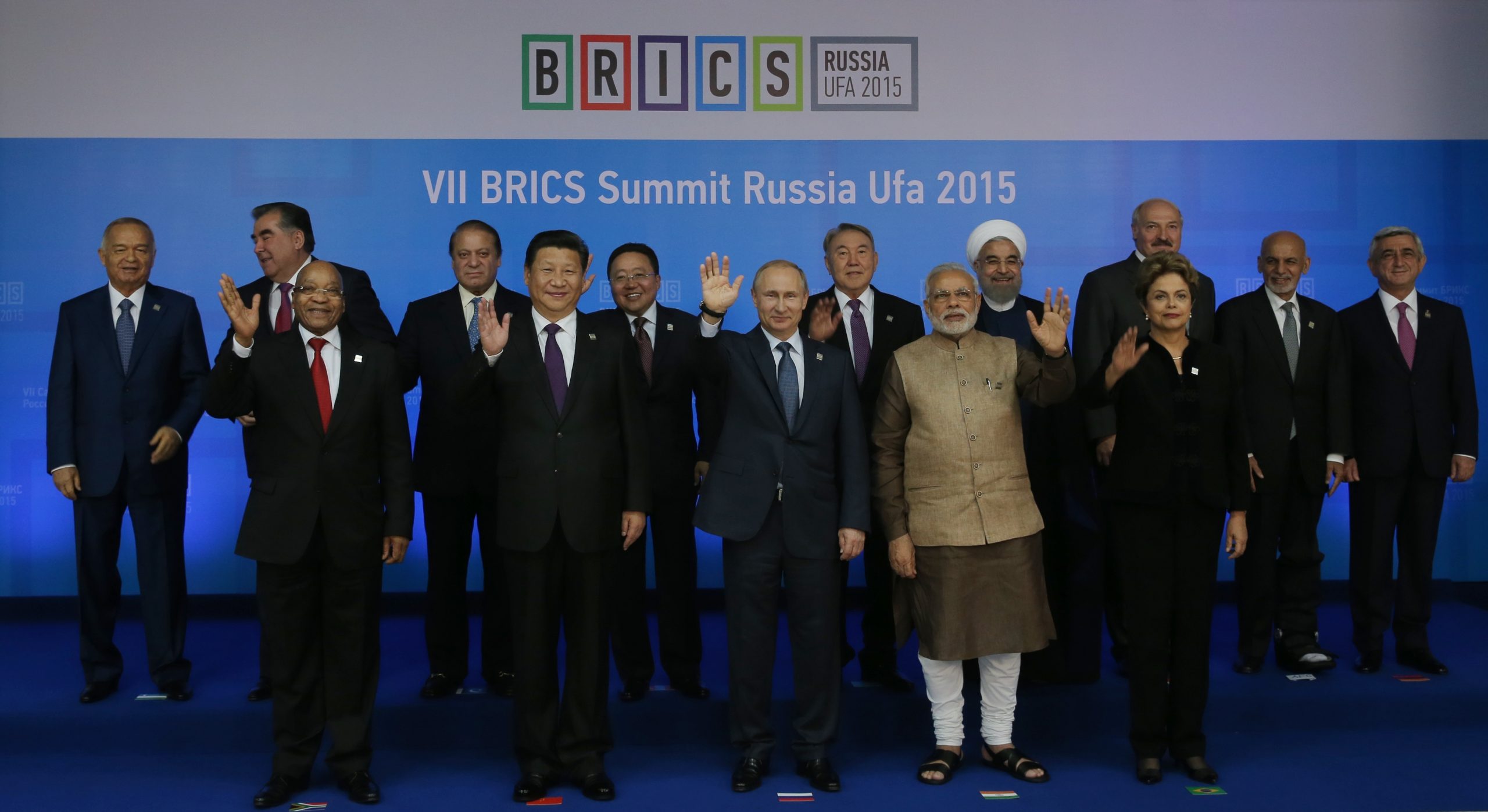Above all, BRICS aspires to be an alternative to traditional global financial institutions like International Monetary Fund (IMF) and World Bank (WB), both dominated by the United States (U.S) and western countries. IMF and World Bank follow different voting power based on quota system. Although China is the second largest economy after U.S, it lacks voting rights. The New Development Bank aims to reduce the importance of US dollar as a global currency. In the future it also aims to see a feasibility of a wider use of national currencies in mutual trade. The argument for that is that because the IMF cash assistance program is conditional, if a country’s foreign policy clashes with U.S it has difficulties to obtain a loan.Despite the previous mentioned BRICS intentions Civil Society Organizations (CSOs) are wondering if this will be a new way of co-operation, or the same as IMF and WB are doing but clothed in new face? The reason for this question relates to the fact that, although many investments are done by BRICS countries, so far their contributions to fight against poverty, inequalities and human rights violations and to improve peoples lives are still very low.For example in Mozambique the investments from China, Brazil and India have created many problems like land grabbing, human rights violations, smuggling of natural resources and tax evasion. These concerns were shared by many Civil Society Organizations from BRICS countries (Brazil, India, China and South Africa) saying in one voice that it is necessary to redefine the south-south solidarity.The first CSO meeting was held in Maputo-Mozambique last May. During the gathering CSOs made a diagnosis of what can be expected from BRICS investments in their countries.CSOs produced a statement delivered to the BRICS Leaders during the Seventh BRICS Summit in Russia. The statement concluded that: “It is time for BRICS to help formulate and implement a new path of economic and social development based on the needs and aspiration of the developing world. BRICS Civil societies, as well as other participants of the people of the global political dialogue, are ready to bear their share of responsibility for overcoming inequality and poverty and promoting social justice, health, environment, human rights and peace… ” Civil BRICS Forum statement – Appeal to the BRICS LeadersWill these countries be able to respond to the appeals of the Civil Society Organizations ?The BRICS countries include 42% of the world population, 26% of the land territory and 25% of the world´s GDP. Despite that they lag far behind developed nations in terms of infrastructure. They all are large, fast-growing economies in developing or newly industrialized countries.Despite having the largest population, China has only around 12% arable land. Less available land means less domestic food production, which in turn means significant food demand. Those who are looking for land are also looking for water, markets and natural resources such as gas, oil and minerals. Africa can provide those resources, but the continent does not have the capacity to, by itself, explore its riches. The infrastructures are not in place either, Africa needs up to $200 billion worth of infrastructure over the next two decades. The investments from BRICS countries and the New Development Bank could therefore be very welcome.But why are the CSOs so worried about BRICS investments? Continents such as Africa have weaknesses like lack of strong policies for sustainable exploitation of natural resources. Where there are policies, their implementation is a challenge. So, how to combine investments and social development? CSOs appeal to the BRICS leaders that the production should be redistributed and it should not harm the environment. Strong institutions and governments are needed in order to avoid the same situation in which the IMF and the World Bank have led the African countries – Situation where despite countless investments, loans and economic restructuring programs poverty and social inequalities remain high.Yes to investment, but no to the land grabbing, yes to companies but no to tax evasion, yes to growth but no to inequality.

BRICS, a new way to co-operate or the same song with a different sound?
The leaders of the Federative Republic of Brazil, the Russian Federation, the Republic of India, the Republic of China and the Republic of South Africa (BRICS) met this month in Ufa, Russia, at the Seventh BRICS Summit, which was held under the theme ”BRICS Partnership – a Powerful Factor of Global Development”. The principal issues discussed were the establishment of the BRICS New Development Bank (NDB) and investments in BRICS. The NDB aims to finance infrastructures mainly in BRICS countries.
Teksti: Mário Machimbene